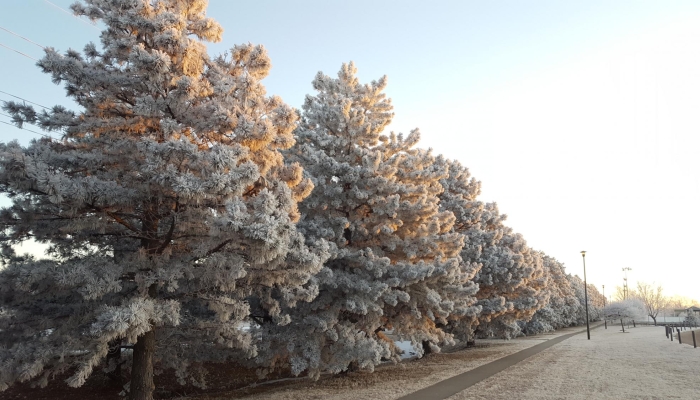O Say Can You Tree?
There are hundreds of documented benefits to surrounding yourself, your business, or your community with trees. From physical and mental wellbeing to economic stimulus and crime reduction, planting trees on your property is a simple way to make a big impact. That’s why the Upper Big Blue Natural Resources District is once again offering its popular Conservation Trees Program this year. The program provides residents of the district with the opportunity to buy bulk seedlings at a low cost for spring 2020 planting. For added convenience, this year trees can be ordered via the NRD’s website. Paper order forms can also be picked up at the NRD office (319 E 25th St, York).
Last year, the Upper Big Blue NRD sold more than 15,650 trees in the district. While this number may seem large, it is in fact a decrease from previous years. This decline has been experienced by NRDs across the state, as fewer landowners are making this essential investment in their property.
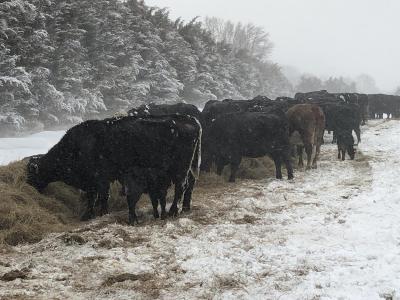
However, the Nebraska Association of Resource Districts predicts that tree sales may increase this year, due to the harsh 2019 winter/spring. “Sales in 2020 are expected to rise, as livestock producers look for low-cost options to protect their herds,” stated an article in the organization’s annual report, which noted that livestock with access to tree windbreaks had better survival rates last winter. “With extreme weather events becoming more frequent, livestock producers are re-evaluating the importance of placing strategic trees and shrubs to increase protection for their animals.”
The Conservation Tree Program collects orders between November 1 and March 30. Trees are delivered in April. Some tree species do sell out, so those that want a particular type of tree are encouraged to order early. The Upper Big Blue is offering 50 tree varieties this year, including flowering shrubs such as lilacs and honeysuckle; fruit and nut trees including black cherry and pecan; popular conifer varieties including Colorado Blue Spruce; and deciduous trees including several varieties of willows and maples. The seedlings are $1.18 each and must be ordered in sets of 25. For orders of 150 trees or more, NRD staff will also plant the trees ordered for an additional $1.18 per tree. For these larger orders, NRD staff will provide free consultation services to the property owner to plan where trees will be planted and which varieties to install for best results and to achieve specific goals.
New this year, the Upper Big Blue NRD will also offer tree packages containing 50 trees for $55. The packages will include ten trees each of five species. The East Package contains Colorado Blue Spruce, Swamp White Oak, Nanking Cherry, and McKenzie Chokeberry. The Wildlife Package features American Plum, Elderberry, Woods Rose, Nanking Cherry, and McKenzie Chokeberry, and the Flowering Package includes Nanking Cherry, Red-Osier Dogwood, Common Lilac, Crabapple, and Caragana.
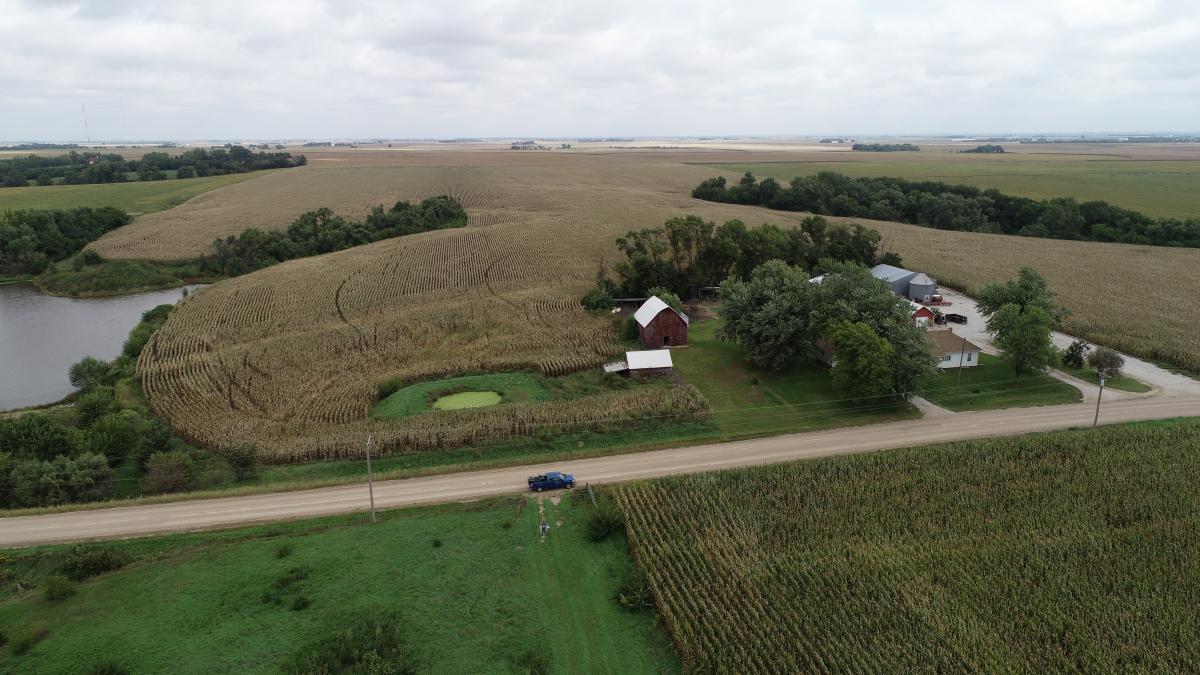
A farm near Milford protected by a shelterbelt
While there are benefits for everyone to planting more trees, there are extra advantages for ag producers. For those raising livestock, a shelterbelt of trees can increase calf survival by 12 percent, minimize winter stress on the herd by providing a windbreak, and can increase feed efficiency. For those with row crops, a shelterbelt is even more beneficial. A field windbreak can increase yields by 12-25 percent (depending on the crop). Trees keep costs down by conserving plant moisture and by reducing wind damage and abrasion of plants.
A shelterbelt near a farmstead can be particularly beneficial in Nebraska, as trees protect the home from noise, dust, and snow drifts, as well as cut down on heating and cooling costs.
Those who enjoy hunting and fishing also benefit from additional trees on their property, as more trees means more wildlife. Trees provide habitat and food sources for many animals, as well as shelter from bad weather and cover from predators. Trees planted along waterways means cleaner, more habitable water for fish, as the trees filter pollutants, reduce erosion, and stabilize streambanks.
Those that are considering tree purchase for a school, church, business, or community should note that an increase in trees has been linked to reduced air and water pollution, lower air temperatures, decreased crime, lower stress levels for residents, and increased economic development. For individual property owners there are economic gains to planting trees, as well. As was already mentioned, trees near a home or office building decrease heating and cooling costs. They add beauty and increase property values, as well.
SILVOPASTURE SYNERGY
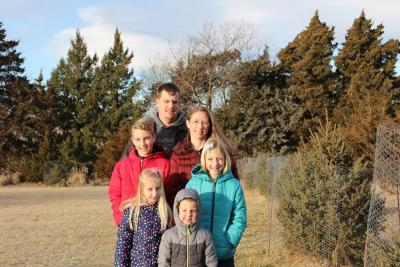 “NRD trees are such a great deal!” says Melinda Marquart of Arbor Vitae Acres. She and her husband Andy, a farmer, have planted more than 200 trees on their acreage in York County. When they bought the property in 2007, it was in bad shape, having previously been used as a junkyard. A few scrubby cedars were all that remained of an existing shelterbelt. Restoring the land through tree planting was a top priority.
“NRD trees are such a great deal!” says Melinda Marquart of Arbor Vitae Acres. She and her husband Andy, a farmer, have planted more than 200 trees on their acreage in York County. When they bought the property in 2007, it was in bad shape, having previously been used as a junkyard. A few scrubby cedars were all that remained of an existing shelterbelt. Restoring the land through tree planting was a top priority.
“We started by improving the shelterbelt, then added the orchard the next year,” she said, pointing out the peach, plum, apple, and pear trees. “We’ve added a few others over the years,” including a stand of Northern Pecan trees and replacements for trees nibbled down by hungry deer. “Our yard is a deer highway,” she jokes, noting the sturdy fencing that protects the smaller trees.
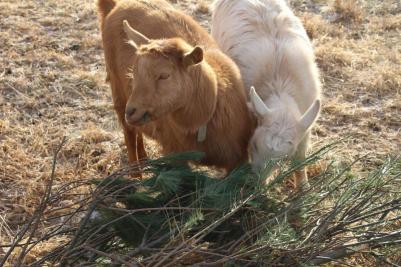 The placement of the Northern Pecan trees in their goat pasture is a practice called silvopasture, where trees and livestock work symbiotically and produce more together than they could alone. As the trees mature, they will provide shade for the goats while the goats provide fertilizer for the trees. This will mean a greater harvest of two crops, milk and nuts, for the Marquarts.
The placement of the Northern Pecan trees in their goat pasture is a practice called silvopasture, where trees and livestock work symbiotically and produce more together than they could alone. As the trees mature, they will provide shade for the goats while the goats provide fertilizer for the trees. This will mean a greater harvest of two crops, milk and nuts, for the Marquarts.
The trees they have planted provide many benefits: protection from the elements; food for the family and their goats; and a fun place to explore nature for their four children. “Every little seedling was planted with my own hands. It’s so cool to see them now over 20 feet tall,” said Melinda. “I love trees. I am thankful for the Conservation Tree Program through the NRD. It’s been a great way for us to add trees at a low cost.”
Ready to order trees for your home, farm, or business? Order online now or call the NRD office at 402-362-6601 to get started.

